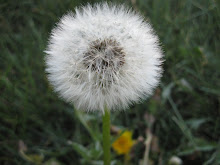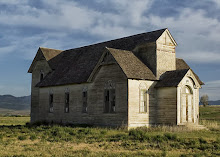CONCLUSION
I thought to pass away before, and yet alive I am;
And in the fields all round I hear the bleating of the lamb.
How sadly, I remember, rose the morning of the year!
To die before the snowdrop came, and now the violet’s here.
O, sweet is the new violet, that comes beneath the skies,
And sweeter is the young lamb’s voice to me that cannot rise,
And sweet is all the land about, and all the flowers that blow,
And sweeter far is death than life to me that long to go.
It seem’d so hard at first, mother, to leave the blessed sun.
And now it seems as hard to stay, and yet His will be done!
But still I think it can’t be long before I find release;
And that good man, the clergyman, has told me words of peace.
O, blessings on his kindly voice and on his silver hair!
And blessings on his whole life long, until he meet me there!
O, blessings on his kindly heart and on his silver head!
A thousand times I blest him, as he knelt beside my bed.
He taught me all the mercy, for he show’d me all the sin.
Now, tho’ my lamp was lighted late, there’s One will let me in;
Nor would I now be well, mother, again, if that could be,
For my desire is but to pass to Him that died for me.
I did not hear the dog howl, mother, or the death-watch beat,
There came a sweeter token when the night and morning meet;
But sit beside my bed, mother, and put your hand in mine,
And Effie on the other side, and I will tell the sign.
All in the wild March-morning I heard the angels call;
It was when the moon was setting, and the dark was over all;
The trees began to whisper, and the wind began to roll,
And in the wild March-morning I heard them call my soul.
For lying broad awake I thought of you and Effie dear;
I saw you sitting in the house, and I no longer here;
With all my strength I pray’d for both, and so I felt resign’d,
And up the valley came a swell of music on the wind.
I thought that it was fancy, and I listen’d in my bed,
And then did something speak to me–I know not what was said;
For great delight and shuddering took hold of all my mind,
And up the valley came again the music on the wind.
But you were sleeping; and I said, ‘It’s not for them, it’s mine.’
And if it come three times, I thought, I take it for a sign.
And once again it came, and close beside the window-bars,
Then seem’d to go right up to heaven and die among the stars.
So now I think my time is near. I trust it is. I know
The blessed music went that way my soul will have to go.
And for myself, indeed, I care not if I go to-day;
But, Effie, you must comfort her when I am past away.
And say to Robin a kind word, and tell him not to fret;
There’s many a worthier than I, would make him happy yet.
If I had lived–I cannot tell–I might have been his wife;
But all these things have ceased to be, with my desire of life.
O, look! the sun begins to rise, the heavens are in a glow;
He shines upon a hundred fields, and all of them I know.
And there I move no longer now, and there his light may shine–
Wild flowers in the valley for other hands than mine.
O, sweet and strange it seems to me, that ere this day is done
The voice, that now is speaking, may be beyond the sun–
For ever and for ever with those just souls and true–
And what is life, that we should moan? why make we such ado?
For ever and for ever, all in a blessed home–
And there to wait a little while till you and Effie come–
To lie within the light of God, as I lie upon your breast–
And the wicked cease from troubling, and the weary are at rest.












































































































